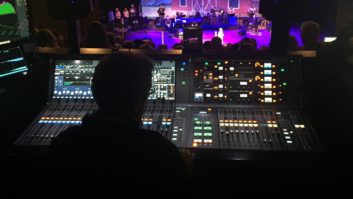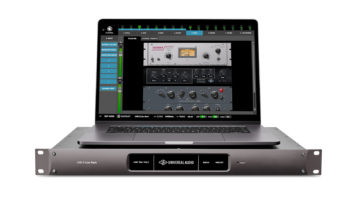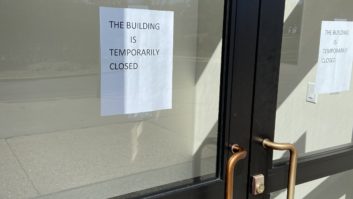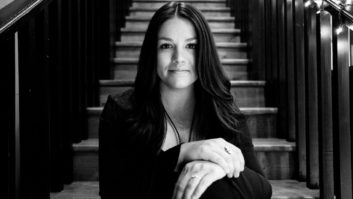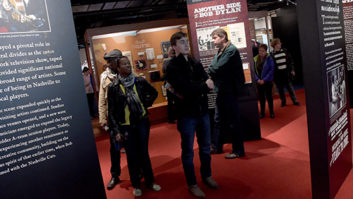To experience Nashville’s Ryman Auditorium is to experience a lifetime of musical legacy. It’s the birthplace of bluegrass, the home of country, the embodiment of the history and spirit of Music City.
You can practically feel the ghosts of the titans who have passed through these hallowed halls: Johnny Cash. Patsy Cline. Enrico Caruso. Theodore Roosevelt. Houdini. Elvis. Not to mention thousands of up-and-coming musicians hoping to walk in the footsteps of their heroes and claim their own place in the venue’s storied history.
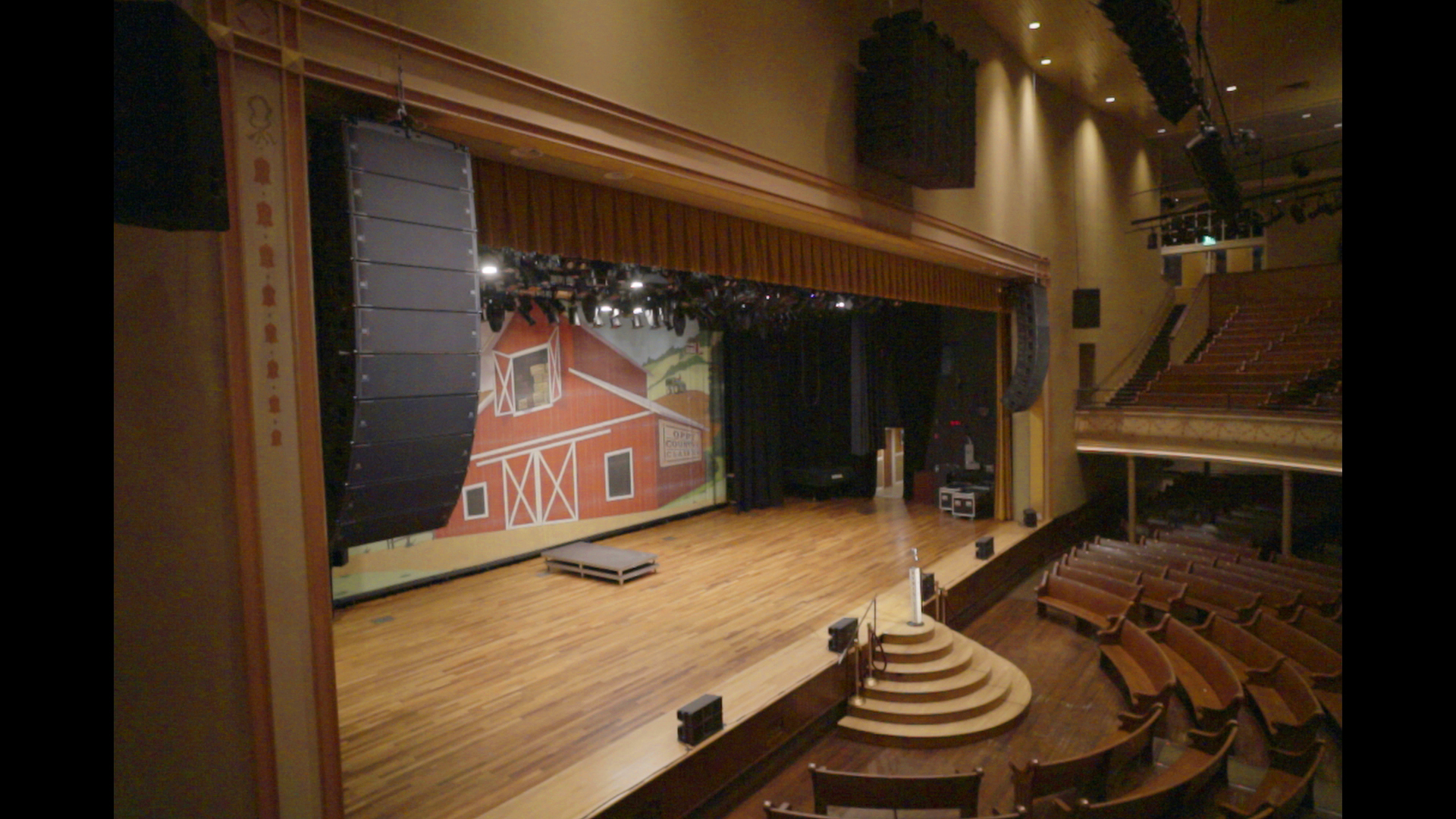
Today, artists of every genre, from Taylor Swift to the Foo Fighters, are honored to stand on the Ryman stage. A National Historic Landmark, the facility operates as both a performance venue and a living museum, holding more than 260 shows each year while hosting 1,500 visitors daily for guided tours.
“We look to create the most modern experience that we can while still holding on to the heritage that people expect,” says Sally Williams, senior VP of programming and artist relations at Ryman parent company Opry Entertainment Group. “We have to continue to add new technology. We have to continue to welcome new types of artists. We always try to make sure that what we’re doing right now will resonate in the same way in 100 years.”
The Ryman is revered as much for its acoustics as its heritage. The 2,300-seat auditorium, born as a revival hall in 1892, was designed to project the booming voices of evangelists, with curved, reflective walls and rows of century-old hardwood pews wrapping the low stage. But those same live qualities of the hall present significant challenges for amplified events, from managing stage volume to ensuring that mixes worked out in a reverberant, empty hall at soundcheck translate well to a full house. Compounding matters is a long, low under-balcony area prone to inconsistent coverage.
“Some people throw their hands up after soundcheck and say, ‘I don’t know. It’s going to be terrible,’ and they freak out,” says Grand Ole Opry audio services supervisor Mark Thomas. “They’re sitting at their consoles really carving inputs and changing the EQ. We usually tell them, ‘No, just stick with what you know works. When the room fills up with people, a lot of the energy will be tamed right away.’”
Sound reinforcement at the Ryman has been handled by JBL since 1994, with a system optimized for acoustic country, bluegrass and light theater; that was replaced by a VerTec system in 2005. As the venue began booking more genres and louder acts, system headroom was pushed to the limit. “We couldn’t keep up with some of the louder stage volumes,” says Thomas. “We realized if we were going to keep trying to do those kinds of shows, it was time to update our system.”
After assessing system needs, the next step was defining priorities on and offstage. Ensuring a familiar artist experience was paramount: “We took it really seriously that we might be messing with that magic,’” says Thomas, who took extensive measurements to model what performers were used to hearing onstage. From the audience perspective, the goal was to provide a consistent experience in every seat, especially in under-balcony sections that suffered from limited sight lines and uneven coverage.
Then the team set about reviewing P.A. specifications from every artist who performed at the Ryman over the past five years. “Everybody has to use our P.A., so we wanted to be in 90 percent of the riders that people are asking for,” Thomas explains. “We chose the top three that people were asking for, and JBL was one of them.”
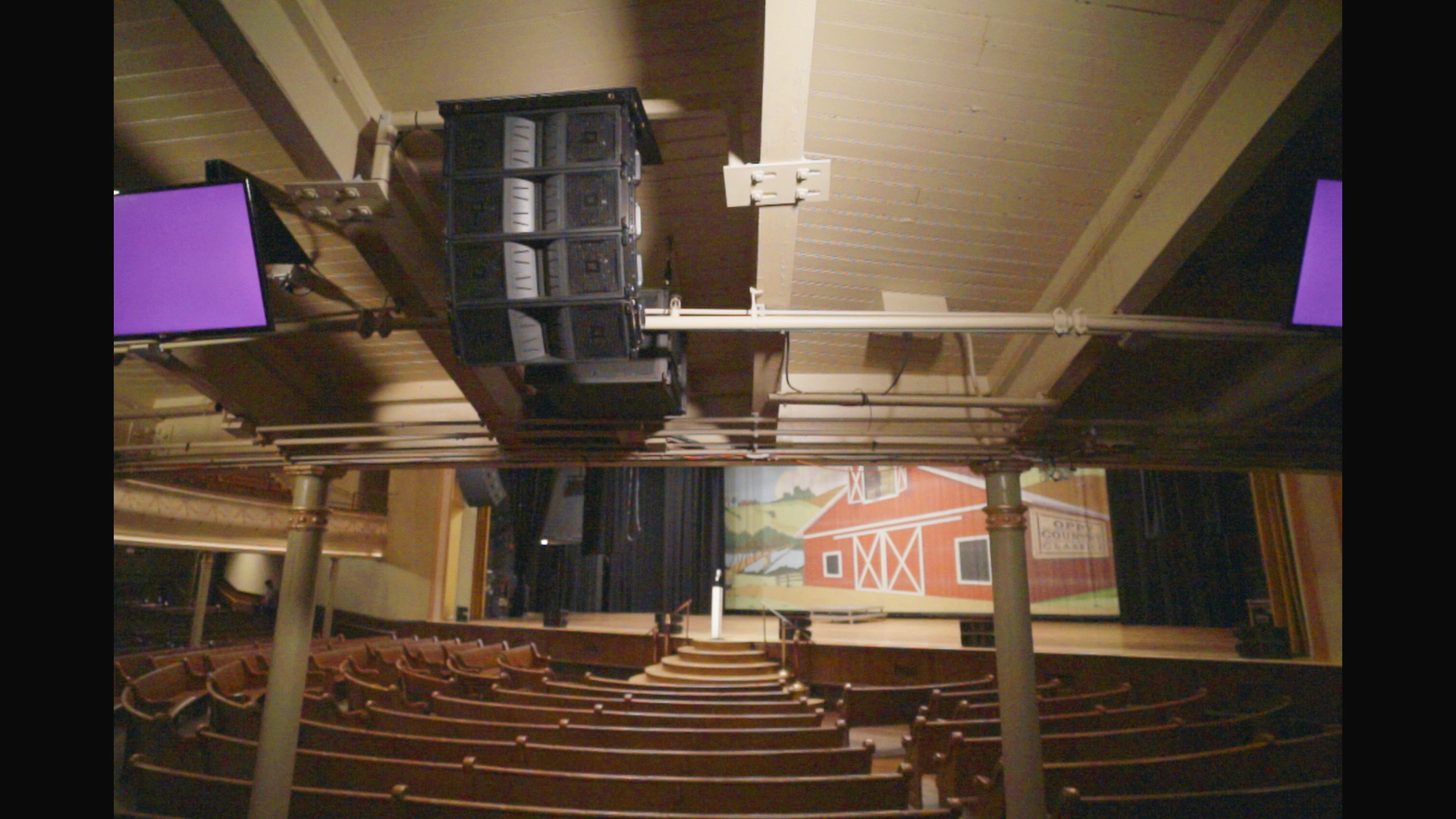
The Ryman team narrowed the field to three manufacturers, represented by three systems integrators, and invited them, along with 20 local live sound engineers, to participate in a full system shootout. “I always welcome shootouts because I think it’s so telling,” says Dan Heins, vice president of Nashville’s Clair Solutions, which facilitated the demos. “I wish it was done more often. We feel better with completely satisfied customers. You don’t want to buy a sound system of this magnitude and put it in and not be happy with it.”
“We ended up with three mono clusters hanging right off the downstage edge and the sub arrays just below,” Thomas explains. “We all walked the room and listened to all three of them over and over and over. That evening we had a bunch of members from the Opry house band come in. We got to feel it with a real band, a real drum kit and some vocalists.”
The shootout’s timing was serendipitous, as unbeknownst to the Ryman audio staff, integrators or participating engineers, JBL was getting ready to introduce the VTX A12, a compact, lightweight new double-12 loudspeaker aimed at mid- to large-scale touring applications and high-end installs.
“We got a phone call that said, ‘We have something new we want to show you. We couldn’t show you there in front of everybody else. We want to take a couple of you guys out to Northridge and show you the new product,’” says Thomas, who flew to Harman’s Los Angeles-area headquarters with Ryman production manager and audio supervisor Les Banks and Opry front-of-house engineer Kevin McGinty to audition the new JBL technology.
The audio team was won over by the A12’s clarity, cohesiveness and lack of coloration: “With a lot of our acoustic problems here, it’s all about vocal clarity and trying to get speech intelligibility up as high as possible,” says Thomas. “I feel like JBL has found that smoothness in that high midrange. We were also really impressed with the subs.”
In January 2018, teams from Harman, Clair and the Ryman took advantage of a rare break in the venue’s performance schedule to install the new system. “There was a lot of preparation with electricians coming in running conduit,” says Banks. “On that Sunday morning at 8 o’ clock, an army of people from the Clair Brothers install team and electricians came in. We had five days to get it going, and then we had a show; the first show was The Grand Ole Opry.”
The Ryman’s A12 system comprises the main P.A., subwoofers, new under-balcony P.A., front-fills and networked amplification. Stage stacks were replaced with hung arrays to clear sight lines and improve time alignment, while minimizing energy onstage.
“The under-balcony was the biggest challenge,” says Heins. “It’s a cavernous space, and it’s very steep. The geometry is unique, from what I can tell, only to the Ryman. It took several tries at it before we really developed the right solution.”
The new system takes the under-balcony from eight passive speakers with eight zones to eight micro-line arrays utilizing JBL VT4886s with time-aligned VT4883 subwoofers in an alternating left-right-left deployment. These zoned arrays have quadrupled the coverage energy for seamless sound in every seat.
“We greatly improved the under-balcony experience for clarity,” says Banks, who has mixed shows at the Ryman for nearly a quarter-century. “It’s not so much volume; it’s definitely coverage. You want everyone who bought a seat to have the same experience. That was the goal.”
The Ryman’s “new sound” is getting glowing reviews from artists, crews, staff and patrons, says Banks. And, he adds, audience compliments take on a special dimension in a town full of music professionals: “You’ve got producers, managers, agents—all critical listeners. You can’t fool them.”
